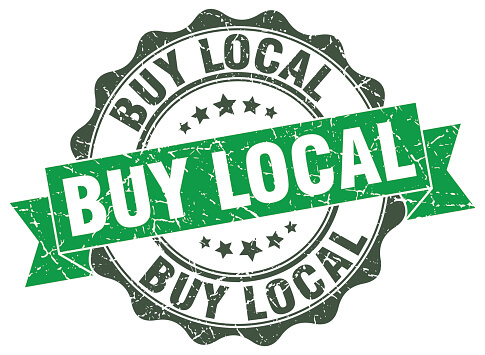By Bill Brunelle
These days, most consumers want to support small businesses. Ninety percent of Americans shop at small businesses at least once a week, according to SCORE. The sentiment is encouraging, but it’s only half of the buy-local hurdle. The other half is bringing the small business message to business to business (B2B) customers. In a new study, Independent We Stand, the North American Retail Hardware Association (NRHA) and Civic Economics show how B2B buyers, like professional contractors, builders and tradespeople, can make all the difference in their local economies, more than doubling the local recirculation of dollars simply by buying locally.
The groundbreaking “Home Sweet Home: Pros’ Edition” study demonstrates the important difference between buying building materials, power equipment and related supplies from locally owned, independent retailers versus buying these products from national chains. To measure the comparable economic impacts, researchers developed a hypothetical homebuilding project with a budget of $1 million. Of that budget, 55 percent went to purchasing supplies and equipment.
Results from the study were released Tuesday at the National Hardware Show in Las Vegas. Analyzing the financial breakdown of local retailers in comparison to national chains, researchers ultimately found that a contractor’s purchases would generate more than twice the local economic activity if made at independent retailers than at national chains. More specifically, the Home Sweet Home: Pros’ Edition study shows:
- Purchasing home building supplies and products from locally-owned retailers keeps more than twice as much of that money in the local economy as identical purchases made at big box chain stores
- Based on analysis, independent STIHL dealers as well as other independent home improvement and building supply dealers recirculate 250 percent more local dollars than their major chain competitors.
- In 2016, a total of $243 billion was spent nationwide on single-family residential construction in the private sector. Collectively, these projects would require $133.7 billion in purchases of tangible goods. If contractors shifted just 10% of those purchases from national chain dealers to independent suppliers, hometowns around the nation would enjoy the benefits of an additional $1.5 billion in economic activity.
With these results, the Home Sweet Home: Pros’ Edition echoes the findings of the first Home Sweet Home study commissioned in 2015 by Independent We Stand and NRHA. It assessed the economic impact driven by consumer purchases of hardware and building supplies. The inaugural Home Sweet Home study first revealed that purchasing home improvement products from locally owned retailers generates twice as much local economic activity as comparable purchases at national chains.
As the second Home Sweet Home study proves, the buy local message remains resonant for both consumer and B2B audiences. Truly, there is an incentive for every kind of customer to shop locally. Contractors must inevitably make purchases to build our communities — and where they choose to make those purchases can determine just how firmly they build our local economies. For a personalized perspective, professional contractors, builders and tradespeople can use a new economic impact calculator from Independent We Stand to estimate how much money their annual business purchases could return to the local economy.
For small businesses, the results of the second Home Sweet Home study should feel just as encouraging as the growing consumer desire to support small businesses. The impacts measured by Civic Economics give small businesses and Main Street organizations relevant, timely data they can use to further their message to B2B customers.
Bill Brunelle is co-founder of Independent We Stand, a cause-marketing campaign sponsored by STIHL, which is dedicated to educating communities about the importance and strong economic benefits of supporting locally owned businesses. Independent We Stand inspires small business owners across the country to celebrate their locally owned status and help consumers understand the importance of supporting them. For more information, visit www.independentwestand.org; On Twitter at www.twitter.com/IndWeStand; On Facebook at www.facebook.com/independentwestand; On YouTube at www.youtube.com/user/IndependentWeStand; On Instagram at www.instagram.com/Independent_We_Stand.







